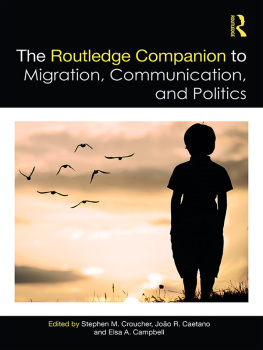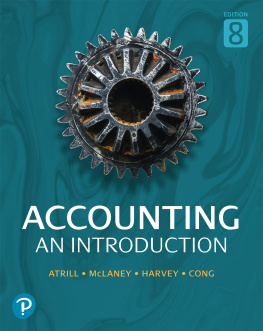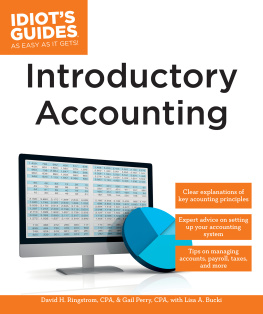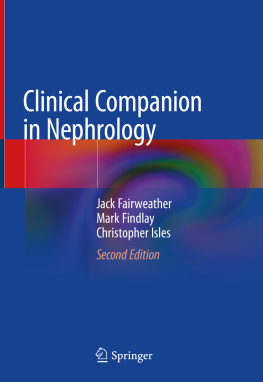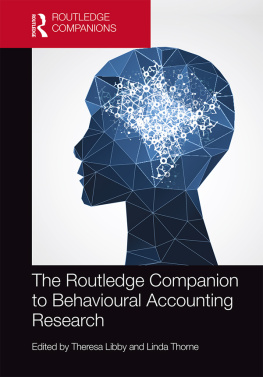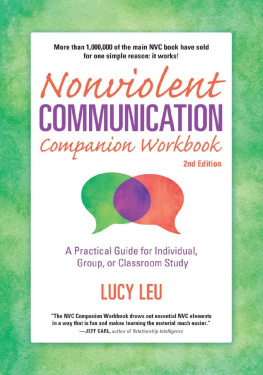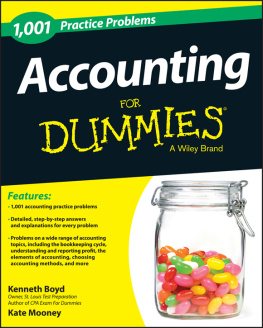Lisa Jack - The Routledge Companion to Accounting Communication
Here you can read online Lisa Jack - The Routledge Companion to Accounting Communication full text of the book (entire story) in english for free. Download pdf and epub, get meaning, cover and reviews about this ebook. year: 2013, publisher: Routledge, genre: Romance novel. Description of the work, (preface) as well as reviews are available. Best literature library LitArk.com created for fans of good reading and offers a wide selection of genres:
Romance novel
Science fiction
Adventure
Detective
Science
History
Home and family
Prose
Art
Politics
Computer
Non-fiction
Religion
Business
Children
Humor
Choose a favorite category and find really read worthwhile books. Enjoy immersion in the world of imagination, feel the emotions of the characters or learn something new for yourself, make an fascinating discovery.
- Book:The Routledge Companion to Accounting Communication
- Author:
- Publisher:Routledge
- Genre:
- Year:2013
- Rating:4 / 5
- Favourites:Add to favourites
- Your mark:
- 80
- 1
- 2
- 3
- 4
- 5
The Routledge Companion to Accounting Communication: summary, description and annotation
We offer to read an annotation, description, summary or preface (depends on what the author of the book "The Routledge Companion to Accounting Communication" wrote himself). If you haven't found the necessary information about the book — write in the comments, we will try to find it.
Lisa Jack: author's other books
Who wrote The Routledge Companion to Accounting Communication? Find out the surname, the name of the author of the book and a list of all author's works by series.
The Routledge Companion to Accounting Communication — read online for free the complete book (whole text) full work
Below is the text of the book, divided by pages. System saving the place of the last page read, allows you to conveniently read the book "The Routledge Companion to Accounting Communication" online for free, without having to search again every time where you left off. Put a bookmark, and you can go to the page where you finished reading at any time.
Font size:
Interval:
Bookmark:
The power of accounting communication
Lisa Jack, Jane Davison and Russell Craig
[A]ccounting is as much about communication as it is to do with measurement. No matter how effective the process of accounting quantification, its resultant data will be less than useful unless they are communicated adequately.
(Lee, 1982: 152)
In compiling this companion volume the shared view we have of accounting communication is one that implies a broad-ranging process of creating and sharing meaning. Thus, it should be unsurprising that the following chapters are a diverse collection. They reflect growing interest in the processes and media that accountants use to communicate accountability information and to represent (and mis-represent) the financial positions of entities. The chapters contain many suggestions for making accounting communications more effective and less biased. They vary in tone and nature by including a mixture of reflective overview, stinging critique, technological exposition, clinical analysis and practical advice. The contributors assess accounting communication from a wide variety of perspectives, including those focusing on pedagogy, discourse analysis and argument theory. The views presented range from mainstream orthodoxy to radical critique.
Our chapter contributors are preponderantly accounting academics. However, we also have contributors from the practising arm of the accounting profession and from the academic wing of the communication studies discipline. The contributors canvass a wide variety of accounting communications research by drawing variously on aspects of accounting history, management accounting, financial reporting, accounting education, auditing and accountability discourse.
An important motivation for this companion volume is reflected in the observation by Hitchins and Taylor in that good communication, both internal and external, is critical to a companys success it is not just about the numbers (italics applied). Thus, a major purpose is to address the misconception among accounting practitioners, academics and students, and the public that accounting is a purely technical and number-based discipline. Accordingly, chapter contributors highlight the importance of words, language and rhetoric in accounting communication. They draw attention to the need for all who practise, research or otherwise engage with accounting to recognize the complexity and malleability of language; and to acknowledge the extent to which the accessibility and transparency of language as a conduit of objective truth is easy to compromise. Contributors emphasize the need for alertness to the potential for accounting messages to be moulded by language and communication media to make those messages incoherent and ambiguous.
explores clarity of meaning in audited financial reports, both from an academic and from a practitioner point of view. In particular, the final chapter offers a strong critique of the taken-for-granted socio-political context that shapes accounting communication.
In the opening chapter of Lee Parker seeks to whet our appetite for research and practical action in accounting communications by reviewing the accounting communications research landscape. He explores a selection of the key research subjects addressed since the 1970s: accounting report readability, Internet communication, visual and graphical communication, impression management, and the concerns of the profession and academe for accounting communication skills. Parker analyses the progress and impact of this research, and outlines several vanished and emergent agendas of accounting communications research. He laments the almost total neglect by accounting researchers of internal organizational communication processes. Such neglect, in his view, is remarkable given the pervasiveness of accounting communications and their myriad forms within organisational life.
Frank Clarke, Graeme Dean and John Richard Edwards draw upon the corpus of the scholarly lifes work of the eminent Australian academic Professor Ray Chambers to illustrate the importance for accountants to develop better communication skills in order that they can better tell it as it is. They illustrate their chapter with examples of bad communication in the prelude to the unexpected collapses and financial difficulties of several large companies in the global financial crisis of 200709. In particular, they focus on mark-to-market accounting and recent accounting miscommunications of the kind Chambers wanted to avoid. Chambers is revealed as a true wordsmith with a deep commitment to meticulously proper use of language, tight logic and conclusions that could clearly and exclusively be drawn from the preceding argument. In particular, Clarke et al. highlight Chambers desire to rid accounting of loose terminology and to achieve recognition of accounting as a communication language [that will] reduce entropy when one receives financial signals from financial reports.
Various tools can help to analyse the language used in accounting communication. Theo van Leeuwen uses critical discourse analysis to illustrate that when actions are changed into words, transformations occur. He argues that Discourses select what actions will be represented, transform actions through the way they are worded, and add motives to actions purposes, justifications and value judgments. Van Leeuwen uses a corporate annual report to demonstrate the presence of four distinctly inherent discourses: accounting, finance, public relations and legal.
Jane Davison highlights the relevance of visualization to accounting. She reveals how the visual exists in various media, and how it takes numerous forms: pictures, photographs, graphs, charts, diagrams, sketches, typography, colour, film, video, logos, cartoons, web pages and architecture. She argues that, as with words, visual images are not transparent, but are powerful impression-management devices. They direct our thought processes and carry important messages regarding professional identity and business leadership.
Joel Amernic outlines the richness and importance of metaphor in accounting, illustrating his argument with the specific example of an IASB exposure draft. He draws on Postman (1996) to stress that like other rhetorical devices metaphor is not an ornament. It is an organ of perception. As such, it plays an important role in shaping accounting discourse. Accountants need to be more sensitive to this role.
Paulo Quattrone investigates the historical roots of rhetoric and memory in the Renaissance. He argues that rhetoric is more than an art of persuasion. Rather, rhetoric is a rational device classifying and ordering thinking through mental images that are often visual. He analyses contemporary balanced scorecards from this perspective.
Niamh Brennan and Doris Merkl-Davies discuss the use of accounting narratives for impression management purposes, for example through favourably presenting an entitys annual performance. Subtle strategies to do this include manipulation of reading ease, deployment of rhetorical devices, over-emphasis or under-emphasis of good or bad news, and the attribution of poor results to external factors beyond an entitys control.
Change in organizational and social contexts bring new communications challenges for accounting practitioners. The expectations of users are raised. Thus, in attempts to accommodate expectations and to justify results and actions, there is a danger accountants will overload their communications with inadequate and misleading, albeit possibly well-intentioned, narrative. The inadequate nature of accounting communications and the changing face of communications technology is discussed by several following contributors.
Font size:
Interval:
Bookmark:
Similar books «The Routledge Companion to Accounting Communication»
Look at similar books to The Routledge Companion to Accounting Communication. We have selected literature similar in name and meaning in the hope of providing readers with more options to find new, interesting, not yet read works.
Discussion, reviews of the book The Routledge Companion to Accounting Communication and just readers' own opinions. Leave your comments, write what you think about the work, its meaning or the main characters. Specify what exactly you liked and what you didn't like, and why you think so.



